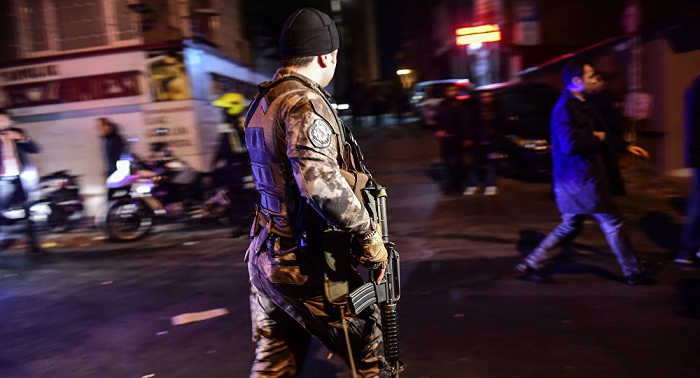Anti-ISIL operations in Turkey continue, police detain over 20 suspects

Counter-terrorism police had previously revealed that one suspect, who lived together with Masharipov, in the Central Anatolian province of Konya, came to the province following the attack.
Police units later followed the suspect and other connected people, conducting simultaneous operations on seven different addresses in the province’s Nilüfer and Göksu districts with the participation of special forces.
During the operation, police apprehended a total of 27 suspects, including 15 women, of Tajik, Uzbek, Kyrgyz and Uighur origin, along with 29 children at six residences.
Police also seized 40 passports, 38 fake identities and 15 packed mobile phones during searches at another address that was empty.
According to police, the empty house was used by two organizers identified as Tajik citizens M.S. and N.S. The latter was apprehended in the western province of İzmir while M.S. is still on the run.
The two suspects reportedly rented houses for ISIL members in Istanbul, Bursa and İzmir provinces by introducing themselves as dentists, doctors or businessmen.
M.S. reportedly settled foreigners who illegally entered the country to join the jihadist group in Istanbul before taking them to residences rented in Bursa and İzmir with N.S.
The suspects who were settled at such residences reportedly knew the duo according to different names and professions.
Elsewhere, an ISIL courier was caught near the Turkish-Syrian border on Jan. 18. Abud Mahho, who illegally entered Turkey through the Akçakale district of the southeastern province of Şanlıurfa, was caught in an operation near the border, Doğan News Agency reported.
Anti-terror police have conducted an operation at a house near the border where they apprehended the courier.
Mahho, who was carrying weapons and ammunition for the jihadist organization, pointed to a spot near the border where ammunition buried underground in bags were found, as well as material used in making suicide vests were seized.
Police have determined that the seized materials carried similar features with the materials ISIL used in previous attacks in Turkey.















































